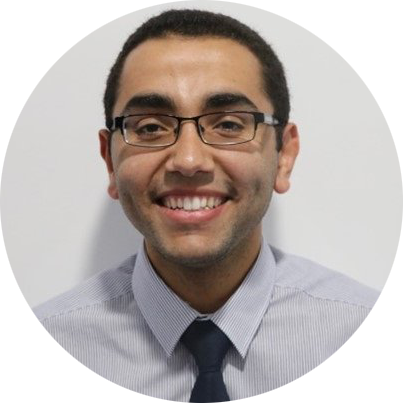
Our schools play a crucial role in shaping the lives and futures of young people. However, in recent years, many schools have faced significant financial challenges. The pandemic has only exacerbated these difficulties, with schools having to invest in additional measures to ensure the safety and well-being of their students. Therefore, it’s become more critical than ever for schools to engage in fundraising efforts to support their students and maintain the quality of education they provide.

While the idea of fundraising may seem daunting to some, it can also be an exciting opportunity for schools to engage with local communities and develop meaningful partnerships. By working together, schools and their supporters can make a real difference in young people’s lives and help create a brighter future.
We met with Mohamed Ibrahim, Class Teacher and Community Engagement Lead at Ark Victoria in Birmingham, who shared his top tips for securing more income through fundraising.
1. Find a staff member with a passion for the community.
Start with a few hours of outreach a week.
My role as a Community Lead started as one afternoon a week for the last two years. I knew I could showcase to the school’s senior leaders that this is a really important job. I had some successes and was able to negotiate a job share. Now every morning until 11am, I focus on community development.
I’m sure every school has members of staff who would love to work more with the community. It might be someone who leads on enrichment or has a pastoral role. Doing community engagement for part of a person’s role, even for a trial period, is a great start.
2. Attend community organising training.
Build your relational power.
I’ve been working with Citizens UK, and they’re fantastic! I attended their six-day training programme. It was eye-opening and transformational. I’d never been to training with people from such a range of backgrounds: religious leaders, trade union reps, and university lecturers. As Citizens UK has members from different sectors, it’s a great way of getting new contacts and building relational power – an essential tool in community organising.
Through Citizens UK, I got a meeting with Aston Villa Football Foundation and Dream Chaser Football Club, a local club just down the road from us. They’ve got funding to get older people from our community into sports, so now they want to work with us. Hopefully, they will be paying to use our facilities for a two-year programme of sports activities after school for adults in our community.
3. Get things done for free.
The contacts you have at a school may surprise you.
Choose an area of focus. Hold an event that can attract interest. Then reach out to parents and staff and ask them to contact their networks.
I contacted a friend who worked at the England and Wales Cricket Board. They had a programme called the All Stars and Dynamos Cricket Club, aiming to get more women and girls into cricket. We partnered with them to get free sports coaching, personalised merchandise for students and around £3000 of funding. Over 200 primary girls have taken part in these clubs. For our summer fete, that same contact helped us get a free boxing ring, wheelchair basketball and outdoor squash courts as part of the Birmingham Commonwealth Games celebrations.
Our contact has moved on to work for Squash England, so we’re looking into what opportunities there could be. We’re bidding to put some permanent outdoor squash courts in our school. We have achieved so much through just one contact.
4. Reach out to elected officials.
Try to create long-term relationships. Go beyond writing a letter.
We’ve been lucky to have Jess Philips as our local MP. For our first Earth Day event three years ago, I emailed a member of her team saying we were holding this event and could she record a video to support us. She did. We’ve worked with her for a few years now. Recently, she did some one-to-one housing advice surgeries for parents.
I was in contact with a local councillor for our community meals. She connected me with quite a few other people, and one of them was Omar, a solicitor who owns a local law firm down the road. He was invited to our first community meal. He saw it, loved it, and now he’s committed to sponsoring the meals.
5. Launch student and parent-led campaigns.
Have a vision for fundraising that includes your local area.
I’m training students and parents in everything I learned in the Community Organising training. Students have identified Small Heath Park, a stone’s throw away from the school, as unsafe and needing investment. This will be a campaign that I will support in planning and delivering with the help of our local councillor and the city council’s Cabinet Member for the Environment. We want them to know their civic duty and act on it.
You only need a few parents to be engaged to create an impact. I’ve got a small group who are proactive in fundraising at events or through the Community Organising training. That’s enough to build momentum. We are looking into starting an Ark Victoria Street Watch, led by one of our parents who has been attending Community Organising training.
6. Have Big Hairy Audacious Goals (B-HAGs).
What’s the worst that can happen?
Be clear about what you’d love to achieve for your school if you had the investment. Then send out the emails and make the phone calls. You’ll stand out for doing that kind of work. Just one opportunity leads to lots of others. My personal B-HAG is for Ark Victoria Academy to be a pioneer in community engagement and a model for excellence across the Ark network and other schools.
Before I started in this role, I asked myself how well we knew our community. Sometimes we felt like an island within it. Beginning with one partner (Citizens UK) three years ago, I’m proud that we’re now working with a network of nearly 20 local partners to help us achieve our goals for the community.